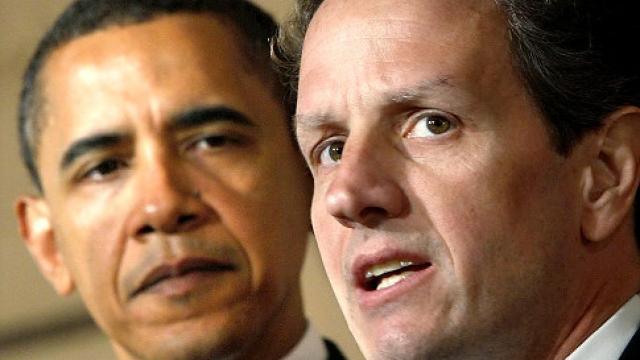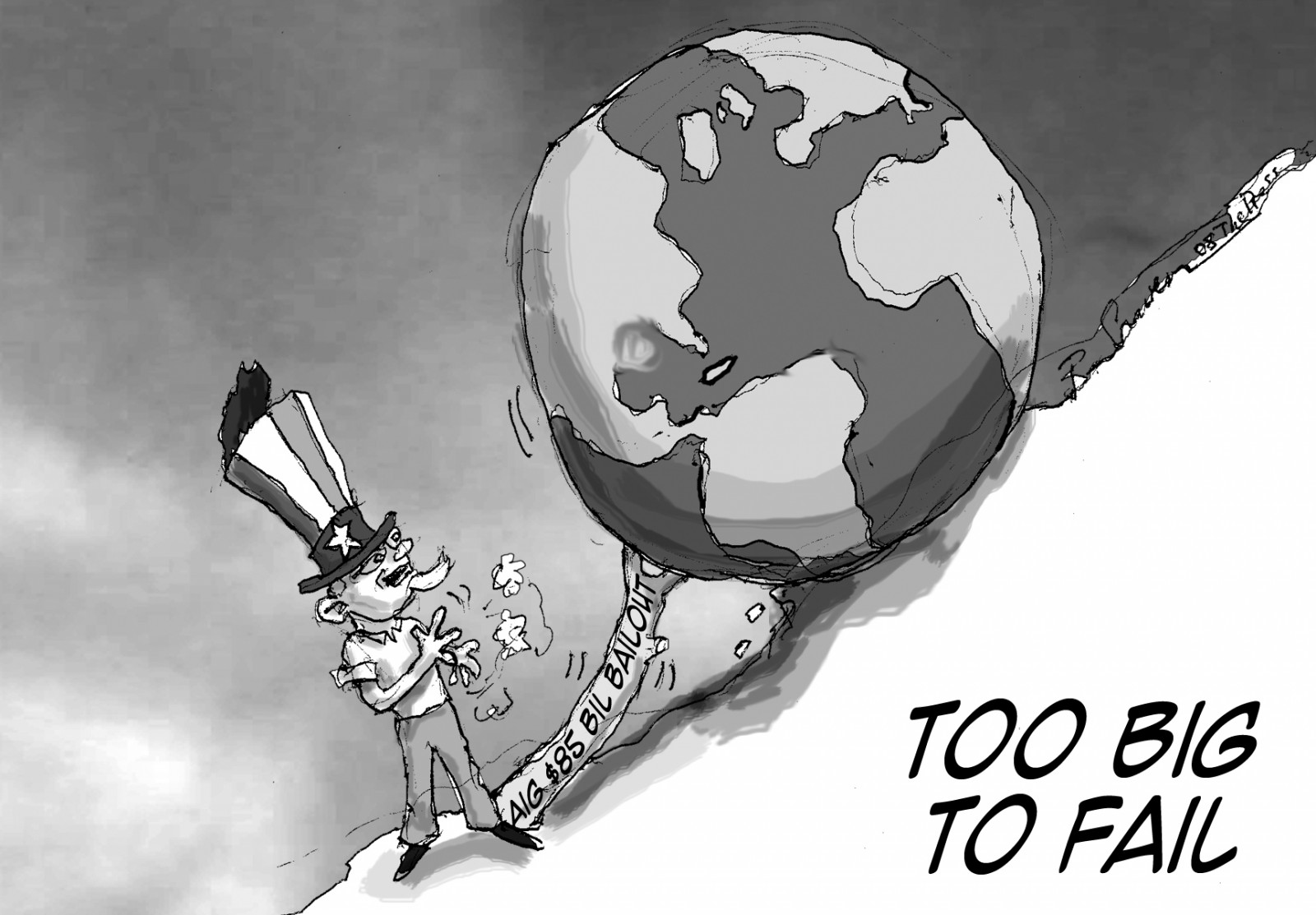
Timothy Geithner’s new book about the financial crisis, “Stress Test,” is basically an argument that the Wall Street bailout succeeded. That’s hardly surprising, given that Geithner was in charge of the bailout when Treasury Secretary (as was his predecessor at Treasury, Hank Paulson), and so has an inherit interest in telling the public it succeeded.
Even so, the bailout clearly did succeed, if success means avoiding another Great Depression.
But another Great Depression might have been avoided if the crisis had been handled differently — for example, by allowing the bankruptcy laws to do what they were intended to do, and forcing the big Wall Street banks to reorganize under them.
In fact, the bailout was a colossal failure in several respects Geithner barely mentions in his book, or avoids completely:
1. The biggest Wall Street banks are now bigger than ever, and no sane person on or off the Street now believes Washington will ever allow them to fail – which means they’ll continue to make big, risky bets because they know they can’t fail. And they’ll get even bigger because big depositors and lenders know they’ll never fail and therefore demand lower interest rates than demanded from smaller banks.
2. No Wall Street executives have ever been prosecuted for what they did to the country, which means even more rampant irresponsibility in executive suites as well as even deeper cynicism in the public about the political power of Wall Street.
3. The bailout helped the banks but did little or nothing for the tens of millions of Americans who lost billions of dollars in home equity and savings, and the millions more who lost their jobs. The toll was greatest on the poor and the middle class, who still haven’t recovered their losses, even though Wall Street has fully recovered (and then some). Nor have reforms been enacted that will help the middle class and the poor the next time Wall Street implodes.
So pardon me if I take issue with Tim Geithner. The bailout was a success in the narrowest terms. Seen more broadly it was a terrible failure.
We’d have done better had we forced the biggest Wall Street banks, including the giant insurer AIG, to reorganize under bankruptcy rather than bail them out.
Meanwhile, Jeff Gerth reports in ProPublica that Geithner admitted his cozy ties to ex-Citigroup executive (and former Treasury Secretary) Robert Rubin "tempered my skepticism" about the bank's health in the years leading up to the financial crisis.
The question to Timothy Geithner could not have been more blunt: Why, asked Oregon Sen. Ron Wyden, had Geithner failed to adequately regulate the banking giant Citigroup during his tenure as president of the Federal Reserve Bank of New York?
"Should your supervision have been more effective?" Wyden demanded of Geithner, then on his way to eventual confirmation as Treasury secretary.
"Absolutely," Geithner responded. But he did not elaborate.
That was five years ago. This week, Geithner provided a fuller mea culpa with the release of " Stress Test," his book on the financial crisis. It does elaborate — albeit modestly — on his oversight of Citigroup, including issues our reporting raised about his time at the New York Fed.
The Federal Reserve supervises bank holding companies. The New York Fed is responsible for firms based in the region, including Citigroup. The largest institution under Geithner's watch, Citi required the biggest bailout — $45 billion in taxpayer funds plus other federal support.
One of his key mistakes, Geithner writes in the book, was failing to realize that Citi's equity, or capital, was weak. Capital is the cushion meant to protect a bank from losses and, ultimately, insolvency.
"I should have paid more attention to Citi's lack of common equity while I was at the Fed," Geithner writes. Although Citigroup, at the urging of the New York Fed, began raising capital in late 2007, he says it "came in the lower-quality forms that investors now found meaningless."
Curiously, at another point in his book, Geithner writes about how focused he was, in general, on the issue of bank capital."I spent most of my time trying to understand whether banks under our supervision had enough capital," the book says.
In articles before and after Geithner's confirmation as treasury secretary, ProPublica examined his supervision of Citi, including the bank's weak capital, risky lending practices and the failure of the New York Fed to use its enforcement tools to strengthen the bank.
The articles reported on Geithner's ties to Robert Rubin, Geithner's mentor, a former treasury secretary under President Clinton and a senior executive of Citigroup during the bank's high-flying years.
Geithner's calendars, obtained by ProPublica, showed that in 2007 and 2008 he had dozens of discussions with executives of Citigroup, including Rubin, more than with any other firm.
In a 2009 interview, Geithner told ProPublica that such meetings were routine and that Citi was not treated preferentially because the New York Fed's system of checks and balances insured its independence.
But in his book, he suggests that his relationship with Rubin did affect his supervision of Citi. Geithner had worked under Rubin at the Treasury Department, and Rubin helped him land his job at the New York Fed in 2003.
"Bob Rubin's presence at Citi surely tempered my skepticism," Geithner writes, and "probably gave Citi an undeserved aura of competence in my mind."
Rubin resigned his job as a senior counselor at Citi in January 2009, prior to Geithner's confirmation.
"Stress Test" does not discuss why the New York Fed did not act more aggressively to stem Citi's risky practices in 2006 and 2007, as detailed in ProPublica's articles. But in the book, Geithner notes that "our supervisors" viewed the bank as "a laggard in risk management."
The bulk of the Geithner's 580-page memoir is a look back at how, as treasury secretary, he helped end the financial crisis and put in place reforms.
[via salon.com]
3 WAYS TO SHOW YOUR SUPPORT
- Log in to post comments













